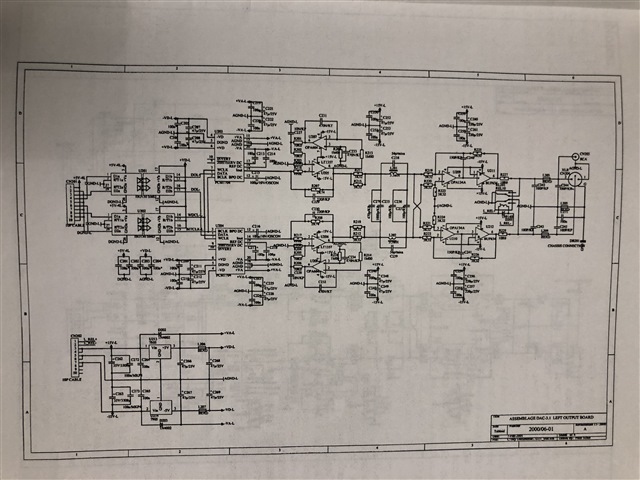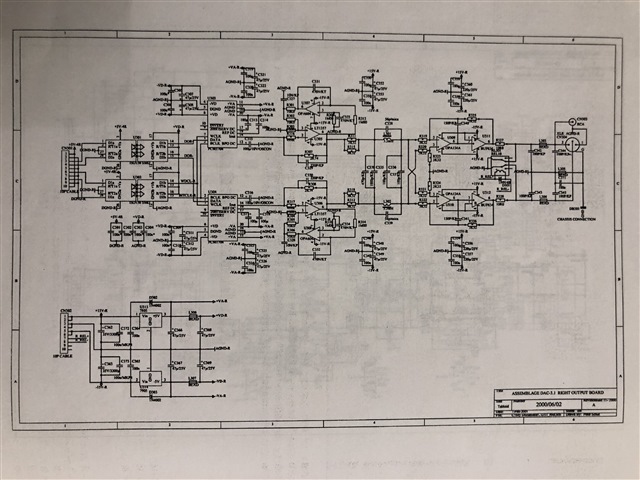Hi there,
I have an older high performance DAC and I'm looking to replace some of the older capacitors on the circuit board.
I'm a amateur electronics kit builder so I don't have knowledge of circuit design.
If you look at caps: (see attached circuit diagrams)
256, 257, 260, 261 on the left DAC channel
356, 357, 360, 361 on the right DAC channel
Both of these are shown as analogue grounding circuits I believe?
Someone has installed old Black Gate caps which are lower value (100uf 16V instead of the 220uf 25V shown in the circuit diagram)
What I'd like to know is what would be the best capacitors to replace these with? Are they in the signal path? Should they be low ESR? Low Impedance? What parameters should I use
when searching Mouser or Digikey for replacement capacitors in this application?
Any suggestions as to what would work well would be appreciated.
Thanks,
Jason
Jason


